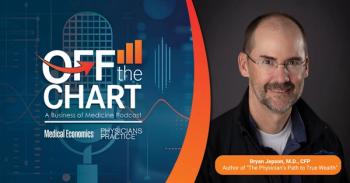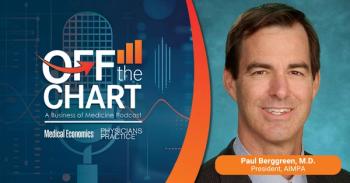
Medical Partnership Divorces: Lessons Learned
Divorce is usually experienced as a personal, familial, and social loss. Afterward, each person needs to recover without permanent negative consequences from their losses, grieve, learn, and go on to better futures. Parallel issues occur in medical partnership divorce: the breaking of legal, professional, and social bonds in a partnership.
Divorce is a pervasive social phenomenon. Rates hover in the 50 percent range with length of marriage decreasing from about seven years prior to 1970 to three years in 1990. After divorce, family members feel bitter, angry, guilty, isolated, and drained. Divorce is usually experienced as a personal, familial, and social loss. Afterward, each person needs to recover without permanent negative consequences from their losses, grieve, learn, and go on to better futures.
Parallel issues occur in medical partnership divorce: the breaking of legal, professional, and social bonds in a partnership. Anecdotal evidence suggests that close to 75 percent of medical partnerships end in divorce. Reliable data on medical practice divorces and evidence of the impact of these events on participants (staff, patients, and safety risks) ought to be collected.
Loads of questions await assessment. For example, since children routinely feel responsible for the divorce of their parents, do some or many of physicians’ staff feel like “children of divorce”? Do other associates or partners feel like children of divorce? Children of marital divorce commonly feel impotent and guilty. How do medical partners, associates, staff, and the family members experience the divorce? Does anyone care?
Are the consequences of practice divorces important in bonding new relationships or new mergers? Do remaining partners communicate better, worse, or with less trust after the divorce? Do any of these residual issues impact on satisfaction, complaints, litigation risk, openness or closure for innovation?
And when divorce goes well how are the lessons learned then incorporated in crafting a premier practice? Below are some insights offered from divorced practices:
1. Speak out when you sense threat to anyone in the practice. Consider creating an agenda item for each business meeting where anyone can bring up what they consider a threat to the practice. Just discussing concepts of threat to the practice is invaluable.
2. Regularly identify and take action to reduce “undue pressure” from within the practice. Share, discuss, and try to resolve the same undue pressures from outside sources, including referral sources.
3. Create certainty and agreement in areas that matter to the practice vision. Regularly revisit the practice’s vision. At some regular interval hire an outside facilitator to confirm work on understanding and realizing the practice’s vision.
4. Prioritize - and don’t allow glossing over - commitment to a culture of learning from mistakes, near misses, mal-occurrences, and failures. Tolerate and learn from the ubiquity of “mistakes.”
5. Understand and support colleagues when they jettison “overload.” Ask each other what produces the experience of overload, and regularly schedule time to implement plans to neutralize this overload. Extend the discussion from physicians to managers to staff.
6. Validate with each partner that you know what makes them feel professionally worthwhile.
7. Validate with each partner that you know what makes them feel professionally exhausted.
8. Share strategies that help each other cope with unrealistic expectations and risk for burnout.
9. Act on issues, events and plans that contribute to building “community,” a feeling of extended family in the practice.
Remember, actions which maintain common purposes promote collegiality. In premier practices, colleagues choose to serve and empower one another. In such practices demonstrations of friendship, comfort, understanding, respect, and caring are everyday events.
What do you think? Please share items, events, and behaviors that promote collegial intelligence.
John-Henry Pfifferling, PhD, is director of the
Newsletter
Optimize your practice with the Physicians Practice newsletter, offering management pearls, leadership tips, and business strategies tailored for practice administrators and physicians of any specialty.






